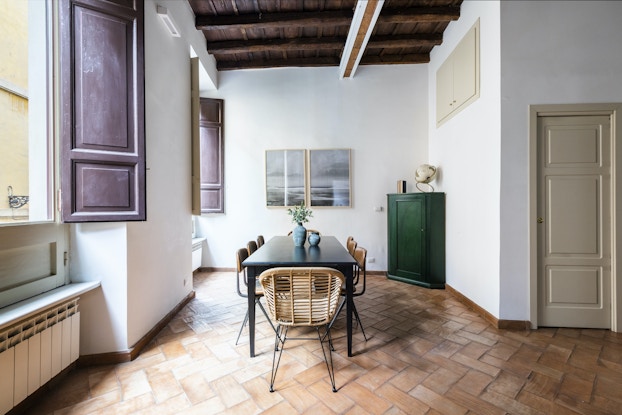
Why it matters:
- Nine out of 10 businesses plan to combine remote and on-site work in a new hybrid model designed for a pandemic-changed world.
- To that end, the hospitality industry is now courting the millions of “digital nomads” in the U.S. who compose the hybrid workforce.
- Hotels and startups are offering features such as “office for a day” workspaces and packages that combine remote work with travel, fitness and a range of activities, from archery to philosophy classes in Greece for remote workers living abroad.
The COVID-19 pandemic turned millions of Americans into remote workers in 2020 and created the work-from-anywhere trend.
Now, the hospitality industry is betting that change is permanent, and they are pivoting to monetize it.
After a year that saw hotel bookings drop to historic lows and left 458 million hotel rooms empty in 2020 compared to 2019, the average occupancy rate this year still is expected to only be 52.5%, down from 66% in 2019, according to the American Hotel and Lodging Association.
This has forced hotels to be more flexible and creative than ever, resulting in offerings ranging from “office for a day” workspaces to packages that combine remote work with travel, workouts and fitness routines, and even adventures like archery and ax-throwing lessons.
A McKinsey & Co. study found that nine out of 10 businesses plan to combine remote and on-site work in a new hybrid model designed for a pandemic-changed world.
Skift Research, which conducts a monthly U.S. Travel Tracker survey, reported earlier this year that people working remotely said they plan to take more trips this year because of the work from anywhere flexibility.
In turn, the hospitality sector is pivoting to capture the business of the new hybrid workforce.
Sonder, the apartment rental and hotel startup, is “confident that the digital nomad trend will continue beyond COVID-19,” Sanjay Banker, president and chief financial officer, told CO—.
Recent studies, Banker said, indicate that a total addressable market of $972 million a year could be converted from rentals to hotel stays by digital nomads, accounting for roughly 33 million room nights a year.
“That’s a significant number,” he said. Sonder’s flexible accommodations, offering suites and apartment-style features like a full kitchen and laundry, “provide a fantastic home base for digital nomads,” he said.
[Read here on five hospitality industry pandemic pivots.]
Hyatt Hotels and Resorts was among the first in the industry to promote the working vacations idea with its “Work from Hyatt” extended-stay launch in August 2020. It proved to be so popular that Hyatt has added other offers designed for remote workers and post-pandemic travelers.
As of June 10, Work from Hyatt and related promotions have resulted in more than 20,000 bookings in over 60,000 Hyatt hotel rooms, Asad Ahmed, senior vice president of commercial services, Americas, told CO—.
Here are five trends hotel operators are responding to with their new offerings for remote workers, digital nomads and business convention attendees:

Extended-stay vacations
Hyatt this year expanded beyond its five-night-minimum Work from Hyatt packages with an option for even longer remote-working trips. In February it launched The Great Relocate package, which offers the chance to work from Hyatt hotels in cities in Europe, the Middle East, Africa or India with perks like an IT concierge and complimentary use of a boardroom-style meeting space for those who book for a minimum of 29 days. Guests who book longer stays get room upgrades.
Dutch hotel brand CitizenM tapped into the digital nomad trend last year with its “global passport” program. Guests buy a package of 30 consecutive days which they can use at any CitizenM hotel, provided they stay at each location for at least seven days. To date, CitizenM has sold more than 230 global passports, according to a company spokesperson.
Sonder was known for extended-stay travel before the pandemic, but it expanded its offerings in April 2020 in response to COVID after realizing that doctors, nurses, students and others were suddenly in need of long-term, contactless rentals, Banker said. “We quickly made it easier and more convenient to make longer bookings,” he said, with options like monthly payments and discounts for longer stays.
As a result, Sonder’s average length of stay increased from four days pre-COVID to 10 days during the pandemic, which kept its global occupancy rate at 70% through 2020, he said.
Skift Research, which conducts a monthly U.S. Travel Tracker survey, reported earlier this year that people working remotely said they plan to take more trips this year because of the work from anywhere flexibility. In turn, the hospitality sector is pivoting to capture the business of the new hybrid workforce.
Wellness and working out — while working
Hotels are anticipating that fitness routines and opportunities to enjoy nature will be important to those taking remote working vacations.
IHG Hotels and Resorts, the parent company of Holiday Inn, Crowne Plaza and other hotel brands, is promoting its wellness-focused brand, Even Hotels, as places where guests can embrace the healing power of nature at nearby parks and nature preserves. Or, if they have to stay near their laptops, they can use the in-room exercise zones and equipment.
“Wellness has taken center stage for millions of Americans after 2020 and the impact of the COVID-19 pandemic, Julienne Smith, IHG senior vice president, development, said in an April news release. “As travel continues, we expect this segment will realize its full potential as travelers search for hotels that allow them to maintain their wellness routine while on the road.”
The boutique Williamsburg Hotel in Brooklyn, N.Y., for one, is offering a “Work and Workout Suite” with remote office space and use of a Liteboxer, a fitness machine that has been described as the Peloton of boxing.
Making remote working a learning experience
Hotels and hospitality companies have begun offering experiences and classes that can enhance a working vacation or keep non-working family members happy and active.
Hyatt in May announced more than 40 “Explor-cation” offerings at its properties, such as ski-resort mountain gondola rides at the Hyatt Place Keystone in Colorado, or archery and ax-throwing classes at the Suncadia Resort in Washington State.
Sojrn, a new venture launched this year by Los Angeles-based, millennial-focused travel company FTLO, is offering month-long study abroad trips for remote workers. Participants get accommodations, as well as a local host and activities for when they are off the clock, with themed trips like learning Spanish in Medellin and studying philosophy in Greece. Sojrn began offering trips this year and most of its 2021 offerings are sold out.

Hotel as alternative office spaces
Hotels are also offering options for remote workers who occasionally need a work setting that is more professional than their living room, and to companies that are getting rid of their traditional office spaces.
Hyatt in December added an Office for the Day option that provides a workspace from 7 a.m. to 7 p.m. and access to hotel business services and amenities.
Marriott and Hilton also offer office for the day options, including a variety of work-from-hotel day passes and packages for stays of a night or more.
CitizenM, meanwhile, has a corporate subscription program it’s promoting as a solution for companies that have moved out of their offices but still need to have places for client meetings, and who have employees that need to travel for those meetings.
For a $600 monthly fee, companies get daily access to workspaces in any CitizenM hotel, up to three night accommodations per month, and three hours of meeting room space per month.
Hybrid industry conventions to revive the event business
Hotels are seeking to bring back business conventions and group events by offering hybrid packages that accommodate both in-person and virtual attendees.
In addition to creating spaces for broadcasting and recording events, some hotels are letting remote attendees enjoy the same meals as the in-person participants.
When the Hyatt Regency O’Hare hosted a hybrid meeting for a client, it duplicated the on-site meals for remote guests. “The same breakfast, lunch, and snack arrived via contactless delivery right at the doorstep of the virtual attendee’s house,” Ahmed said. “Inside was a menu and plating instructions so they could follow along with the group on-site.”
In addition to offering convention groups the option of on-site rapid COVID testing for attendees, IHG Hotels has partnered with Williams-Sonoma to deliver special food and beverage packages to remote guests.
[Read here on how event industry companies pivoted amid the pandemic.]
Hilton has upgraded the bandwidth at its properties to accommodate hybrid events and installed Presentation Stages – event spaces that can accommodate up to six presenters and up to 50 in-person attendees at hotels in Fort Lauderdale, Atlanta, Denver, Dallas and Beverly Hills. The stages will be installed in four more U.S. cities, and in hotels in Europe, Africa and the Middle East later this year.
CO— aims to bring you inspiration from leading respected experts. However, before making any business decision, you should consult a professional who can advise you based on your individual situation.
Follow us on Instagram for more expert tips & business owners’ stories.
CO—is committed to helping you start, run and grow your small business. Learn more about the benefits of small business membership in the U.S. Chamber of Commerce, here.








